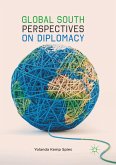This book evaluates the potential for the transformative mediation framework to be adopted in a non-western context. Inspired by the premise that mediator ideology exists and has deep impact on process, Robert A. Baruch Bush and Joseph P. Folger articulated the transformative mediation model which itself evolved from a culture of individualism and problem-solving. This theory of conflict transformation has engaged scholars and practitioners across North America, Europe and Australia. The question remains: is the Transformative Mediation Framework relevant outside of the "West"? Through qualitative interviewing with Palestinian practitioners of the traditional conflict resolution process sulha and in-depth research analysis, this study outlines what distinguishes the ideologies and practices of transformative mediation and Palestinian sulha .








